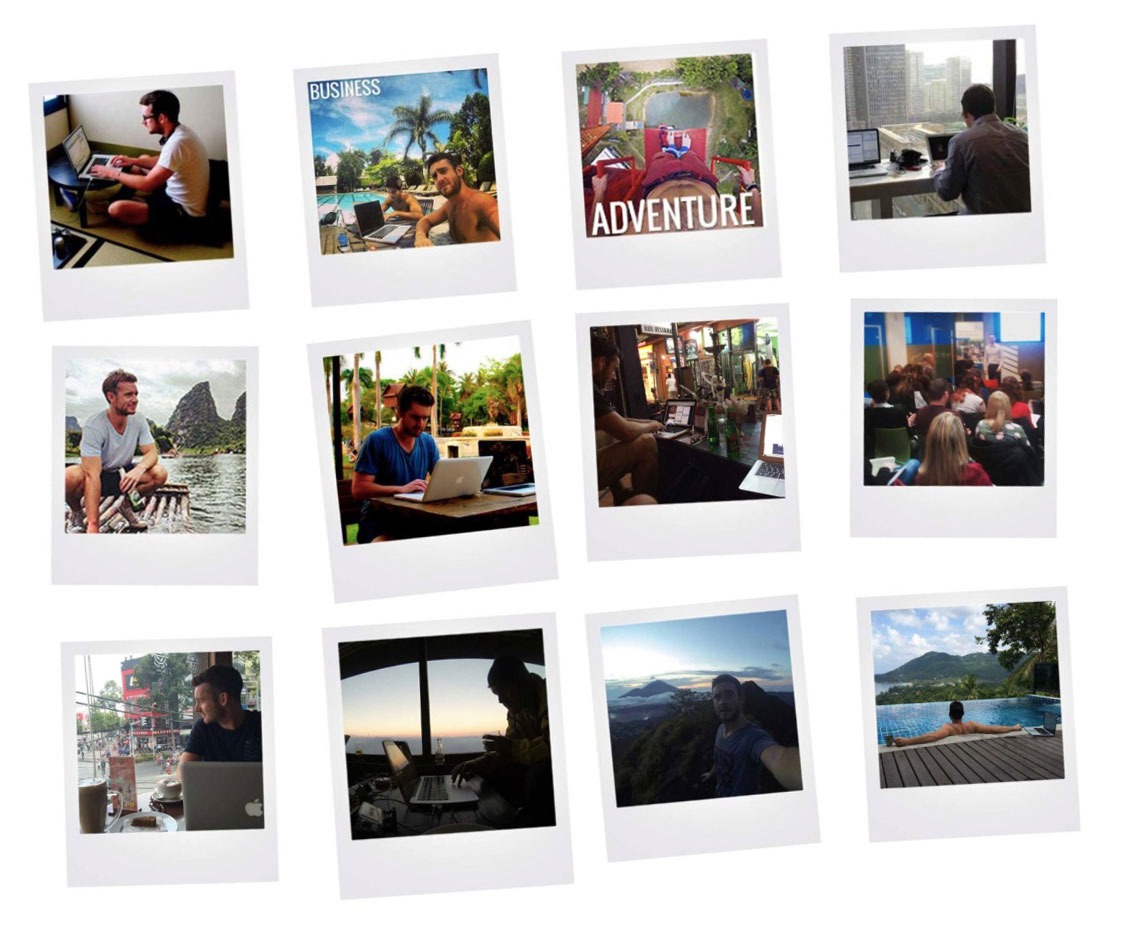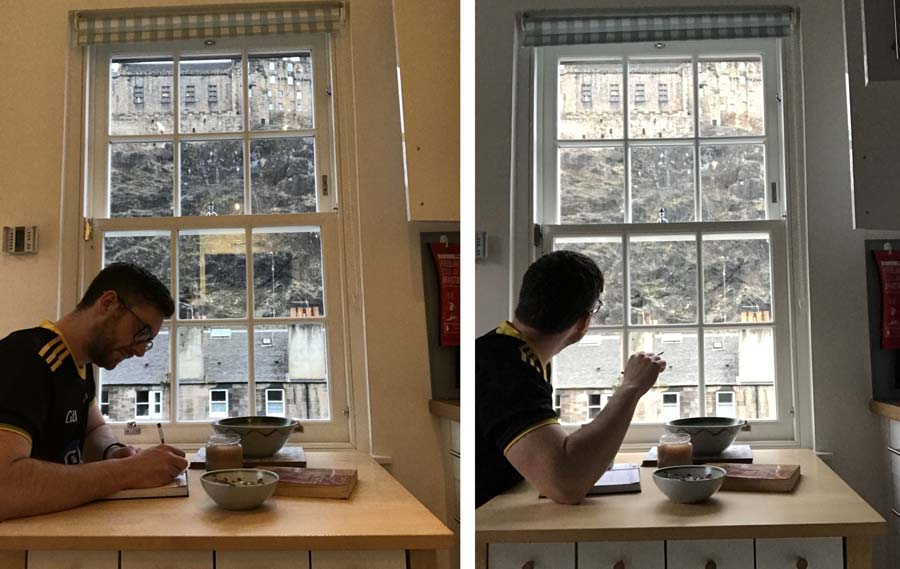April 18
0 comments
April 18
0 comments
Workin' 9 to 5, what a way to make a livin'
Barely gettin' by, it's all takin' and no givin'
They just use your mind and you never get the credit
It's enough to drive you crazy if you let it
9 to 5, yeah they got you where they want you
There's a better life, and you dream about it, don't you?
It's a rich man's game no matter what they call it
And you spend your life puttin' money in his wallet
There is no question that modern working life is becoming more and more demanding.
People are juggling higher workloads, family life and other commitments which is greatly increasing pressure, stress, and a myriad of other issues detrimental to modern-day employees.
But it does it have to be this way?
I myself have always thought no.

I have never had a job.
I have paid my rent and made my way in life for the past 15 years making money from my laptop. This freedom has allowed me to live in over 30 countries and grow as a person.
However, with this recent global pandemic forcing everyone to turn to their laptops that little bit more, you have to ask,
Are we collectively now realising that the very concept of the nine-to-five work day is outdated?
As someone who has worked and lived in this way since University, I believe the answer is a resounding yes!
However, I will admit that structure is still needed.
Total freedom is not the answer. There should simply be more of an emphasis on the "flexible" element of our work days.
With the Covid-19 pandemic set to continue for a year or more many business' are being forced to explore the benefits of a more flexible working model.
I believe strongly that flexible working hours can provide a better, more fulfilling way to manage job requirements and expectations, and why that flexibility could play such a pivotal role in creating a better working relationship that benefits everyone in the not so distant future.
Is 2020 the year we wave goodbye to the nine-to-five model altogether?
Maybe Dolly Parton was onto something bigger than she thought?

Working in an apartment in Vietnam (with my Irish skin burned to a crisp 🙂
From amazing technology to "bleasure trips" I have been embracing and exploring different ways to work and stay efficient for the past 15 years.
There was a time when flexible working was something people did when they were forced to work from home due to unusual circumstances.
Now it has evolved into an entirely new employment model, allowing workers to balance their career with a lifestyle that suits them while ensuring commitment and output remain at a high level.
I know from years of personal experience in the world of working remotely that for flexible working to reach an optimum level, certain key factors need to be set up correctly.
From technology and trust through to effective communication, building a system that allows employees to thrive and businesses to succeed requires many working parts to move in unison.
In theory, flexible and remote working sounds like the ideal solution to several age-old issues that businesses and their employees struggle to see eye-to-eye on, but how does it actually work?
Tim Petch manager of Digital Lead, a global SEO agency, explains "Flexible initiatives can have a great effect on staff wellbeing. We have employees based all around the world and work with clients who never stop." he says, "We have realised that we have to adopt a more flexible attitude towards our working hours because we don't work in a traditional nine-to-five industry. The initiative gave employees control over their time, which allowed them to balance their work with family life and childcare. Since introducing flexi-time, we've seen a drop in lateness, staff are more motivated and, most importantly, they're less stressed."
Good communication in business is essential. We all know this.
This sudden rise in popularity for flexible working hours means that technology needs to be able to facilitate these requirements and keep up with the increasing demands of a mobile workforce.
As a fundamental enabler, technology allows workers to connect from anywhere at any time across the globe.
By harnessing tools such as Google Docs and other web-based software suites, documents can easily be shared conveniently and simply.
Sharing key messages are unlikely to get lost ensuring projects are finished on time.
Whether working remotely from a local cafe or dialling into a call with London from Dublin, conversations can now take place instantaneously. This ultimately improves employee productivity and increases bottom lines.

A recent work trip for 6 weeks in Edinburgh City Centre
Another benefit of working remotely is that it allows employees to combine business trips with leisure, another new trend with an eloquent name, "Bleasure Trips".
This is the side of flexible working which I have always tried to utilise.
I have never really like holidays. Lying on a beach or by a pool all day doing nothing has never appealed to me.
The best pint is a pint deserved, so whenever I landed a large project which I knew would keep me busy for a solid month or two, I would take it as an opportunity to live and explore a new city.
With the advent of Airbnb and Co-Working, it has never been easier to put a laptop and a few Tees in a backpack and head off to Edinburgh, Amsterdam or the next cheapest flight out of the airport that day.
David Armstrong, CEO of HolidayPirates, a leading online platform for travel deals explains, "At HolidayPirates, nobody would frown upon a colleague deciding to work from a holiday destination. In fact, giving our employees the flexibility to work from a location of their choice has been essential to staff retention and employee wellbeing. We offer 24 home-offices days per year, which are often used to work from abroad. Some of our staff will go on regular pleasure trips, while many of our international employees use these days to go home to visit their friends and family."
While there are many advantages to flexible working, there are some obvious pitfalls and all I have fallen into most of them.
Without face-to-face interaction, you will become stressed, isolated, and disenfranchised.
The little stress-relieving interactions that occur in the corridors and kitchens of an office environment have to be replicated remotely. It took me a long time to figure this out.
I now speak with my remote team first thing in the morning and then several times throughout the day. I also try my best to simply call them all for fun when I can.
Instant messaging platforms, phone calls, emails and video conferencing tools are great ways to offset that cabin fever feeling when working from home.
Home worker should be encouraged to have at least one person they can regularly communicate with for both personal and professional reasons and I would highly recommend virtual lunches and tea breaks using these platforms
It was Bill Gates who once suggested companies that give extra flexibility to their employees will one day have the edge.
Businesses that compete with each other will always need to find an advantage wherever they can get it.
Competition is only going to get tougher, particularly where talent attraction and retention is concerned. To that end, businesses will need to adapt and change to accommodate the expectations of their future employees.
Flexible working will soon no longer be a luxury, but a staple and standard expectation.

Bill Gates
Legend
"The competition to hire the best will increase in the years ahead. Companies that give extra flexibility to their employees will have the edge in this area."
I for one, want to truly understand the advantages and pitfalls of flexible working hours and will be using this model within Bodhi. I do so with the aim of making the most out of both my career and personal life and for those crazy enough to join me.
Tags
You have to start somewhere! Get in touch today, schedule your free no-obligation call and let's discuss what is working and what is not working in your business.